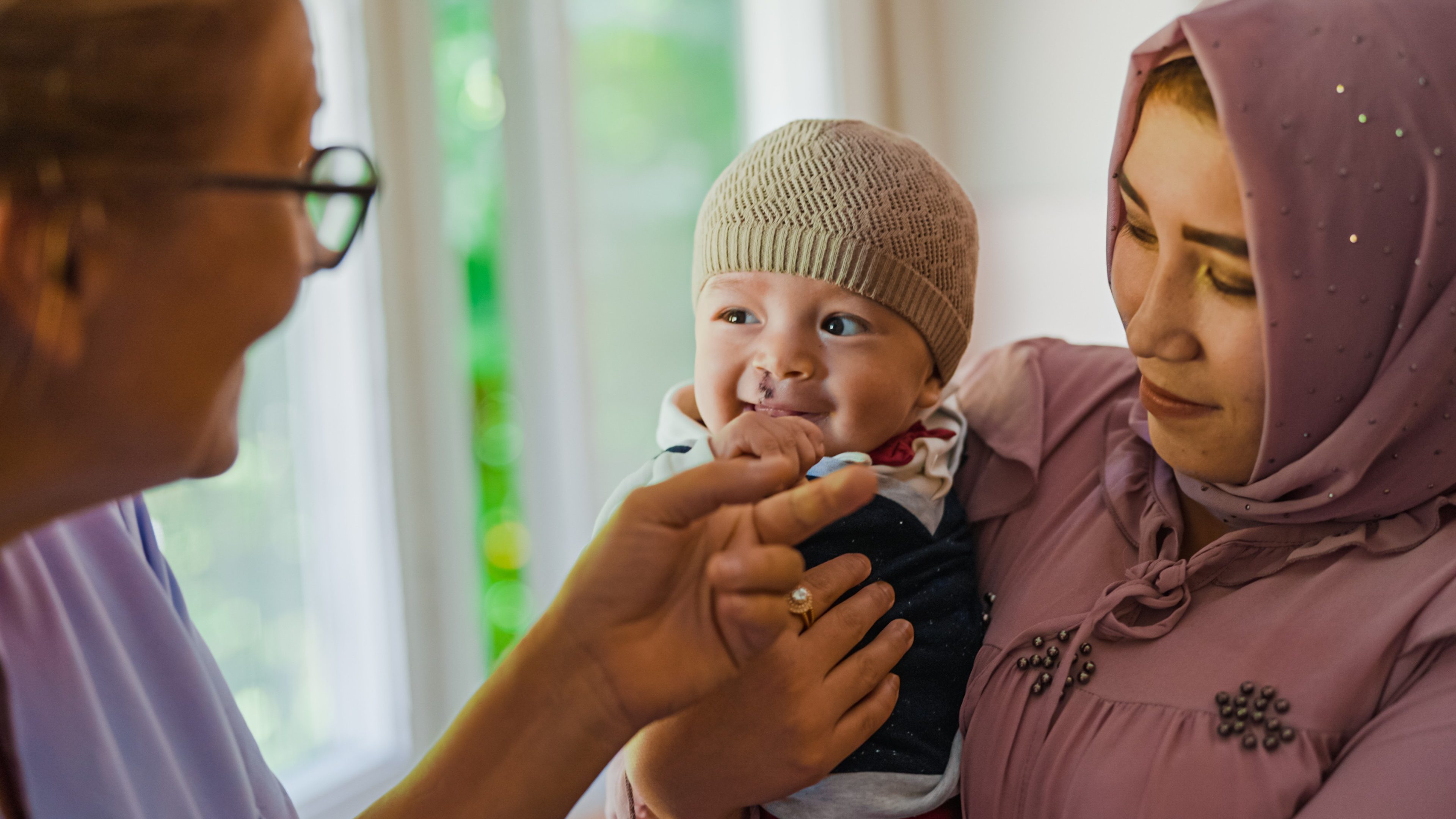
We spent a week looking at patients, planning, reviewing, discussing, and finally operating in many cases.
We are sitting at the table, which is groaning as usual under the weight of countless salads, breads, borsoks, sauces, sweets and other delicacies. The hospital director is just about to thank Prof. Beat Hammer, Dr Robert Weber and Dr Richard Lebeda for the valuable know-how they have passed on to their colleagues in Kyrgyzstan during interminable and extremely difficult operations. Marcel and I are of course already part of the hospital family. Cooperation with the foundation is valuable and successful in every respect. This initiative in Osh is the flagship project throughout Kyrgyzstan. It fills him with pride to be involved in writing this success story and people cooperate in every way, whatever we want. We are also reflecting on our assignment, which was anything but organised. On the one hand, as so often, our friends were unprepared; on the other hand, asymmetries, congenital defects and cleft palates are extremely frequent and difficult. We spent a week looking at patients, planning, reviewing, discussing, and finally operating in many cases. They paid for the expensive surgical material from the patient's fund for the first time. They were proud to be able to order material from Europe and pay for it themselves. They are now happy to decide what they need and want. They all carry out primary operations themselves, without exception. They successfully perform bone compression procedures. Now that Marcel is part of the cleft consultation team at the University of Basel, he is able to provide some input.
It is not only our friends who are thankful. There is also constant gratitude from the children with a cleft palate and their parents. Our friends in orthopaedics and surgery need support, primarily with planning. This is lagging behind the actual treatment. We have been missing digital models, such as those that can be created directly in the mouth with a scanner, which would enable us to provide the Kyrgyz people with even better support from Switzerland on a regular basis. Not only are they available in three dimensions for planning, but they can also be transmitted or used to produce surgical splints. We aim to finish this project with one visit a year in the future, and repeatedly motivate our friends to get regular planning support through digital exchange. Another worthy goal would be for the exchange not only to take place between orthodontics and surgery, but also for a cleft palate team based on an international model. Unfortunately, no speech therapist has been found yet. However, we suspect that this is mainly due to a lack of interest from our colleagues. This is a real shame, as we learned firsthand how important speech therapy was in an interview with the family of 15-year-old Madina, after they purchased it privately elsewhere. Since we do not work in the children's hospital, we are also missing the ear, nose and throat checks. We may be able to build a bridge to the children’s hospital with the new project and also establish this area in the cleft palate team.
